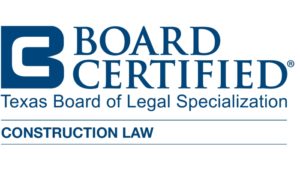The corporate attorneys at Lovein Ribman are equipped to handle every obstacle or need you may face as a business owner, including without limitation, forming a new entity, merging with an existing entity, purchasing a new entity, taking care of all corporate governance issues, bringing in new owners, raising capital, and properly winding up the entity. We perform these services for all sizes of clients from small solo business owners all the way to publicly traded entities. If your company is looking to merge or acquire a business, please submit the Contact Form or call us at (888) 368-2483 for a free no-obligation consultation. Below is a brief discussion of the merger and acquisition process.
Merging Entities
A merger occurs when one business effectively absorbs another. The business that has been absorbed will no longer exist as a separate legal entity, but some elements of the absorbed business may continue to function as part of the merged business. Some of the most common reasons to utilize a merger include: (1) benefits of teaming with other managers; (2) increase in market share; (3) improved channels of delivery; (4) more effective market competition; and (5) Retirement or Estate planning motives.
The way in which a merger affects the business, or businesses, depends on how it is structured. The most common form of merger is the “statutory merger”, which means that the process of merging is governed by state law. A statutory merger may consist of a complete absorption of one business into the other, or may be classified as a “combination”, which means that the businesses are combined to create a new entity, with both existing business entities ceasing to exist as before. There are both state and federal regulations affecting taxation of the transaction as well as antitrust and securities regulations, that make it imperative that you have a good corporate attorney representing you with the merger.
Acquisitions
The first step in acquiring a new business, is to execute a Letter of Intent memorializing the general terms of the agreement. So often this step is attempted by clients on their own and that is a mistake. The Letter of Intent should not just layout the price of the purchase, the due diligence period, and set a closing date. Rather, it should be the roadmap for the entire deal and the formal Asset or Ownership Interest Purchase Agreement that will be executed at Closing to formally transfer ownership. Far too often a client will come in with a Letter of Intent that was not negotiated by an attorney, which either hamstrings the attorney in negotiating the Asset Purchase Agreement because it has unfavorable terms or is missing important terms that delay the closing. Key provisions to include in a Letter of Intent include the following:
- Price: It is important to include that the price may be adjusted if new information regarding the company is discovered during the due diligence period.
- Financing and Payment Structure: The Letter of Intent should not just state what the price will be, but include how it will be financed and paid. An important issue to consider and negotiate is a “holdback” amount. This is usually 10% to 20% of the price that is withheld for six to twelve months to protect the buyer if the seller has violated the purchase agreement, made a misrepresentation, or failed to indemnify the buyer for an excluded liability that causes the buyer to incur damages.
- Escrowed funds: The buyer should have to pay certain funds towards the purchase price in escrow upon execution of the Letter of Intent that are refundable if the deal is terminated during the due diligence period, but kept by the seller if terminated by the buyer after expiration of the due diligence period.
- Seller Involvement After the Sale: The Letter of Intent should outline what, if any, involvement the seller will have after the sale, including employment with the buyer for a certain transition period, training of buyer’s employees, availability for a certain number of hours a week to consult with and assist the buyer.
- Assets and Liabilities: The Letter of Intent should specifically define the assets and liabilities being transferred and kept.
Contract Assignments: The Letter of Intent should define any service agreements, leases, or other contracts of the seller that will be assigned to and assumed by the buyer. - Due Diligence and Closing: The Letter of Intent should set a specific time period for due diligence (typically 3 to 4 weeks depending upon the size of the transaction) and allow for extensions. It should further set a time between due diligence and closing.
- Documents to be Provided by Seller: The Letter of Intent should provide what documents the seller will provide to prove up its representations regarding the Company’s position, including financials, books and records, profit and loss statements, taxes, customer lists, customer contracts, tax returns, accounts receivable, leases, and other obligations.
- Seller Representations: The Letter of Intent should include affirmative representations by the Seller regarding the company’s compliance with laws, financial condition, liabilities or potential lawsuits.
- Permissible Grounds for Termination: The Letter of Intent should include any permissible grounds for termination. Typically, it can be terminated at any point before expiration of the due diligence period, but after that the right to terminate should be curtailed to very specific circumstances.
- Responsibility for Fees and Drafting any Future Agreements: The Letter of Intent should provide who will draft what documents and who will be responsible for what fees.
- Confidentiality and Non-Disclosure: The Letter of Intent should provide for protection of confidential information. This is critical for both parties, especially if a competitor is involved as they could review your confidential information and then use it against you if the deal is terminated.
- Exclusivity: The Letter of Intent should prevent the parties from negotiating with other people during the pendency of the Letter of Intent.
- Noncompete: The Letter of Intent should provide that the seller will enter into a non-compete agreement for at least 3 years after closing to prevent the seller from having seller’s remorse and starting up a competitor after selling the company.
- Indemnification: The Letter of Intent should provide that the seller will indemnify the buyer for any misrepresentations, liabilities that are excluded from the deal, and any breach of the transaction documents.
Due Diligence Period
- Once the Letter of Intent is executed, typically the Due Diligence period begins and lasts three to four weeks. During this time, the following actions should occur:
- Review tax returns, financial statements, sales tax returns, bank statements, licensing issues, customer records, vendor records, etc., to verify that the price in the Letter of Intent is justifiable and if not, negotiate a new price.
- Inspect any real property or leased facilities included in the transaction.
- Inspect any equipment included in the transaction.
- Meet with key employees of the company.
- Negotiate terms of any lease assumptions with lessors for buildings, equipment, or other necessary items to the company.
- Meet with SBA loan officer or other lender and prepare the loan application and business plan for submission.
- Apply for any licenses necessary for operating the business.
- Consult with your CPA or other advisors relating to the purchase tax consequences.
- Decide whether to move forward with the transaction, terminate the Letter of Intent, or extend the Due Diligence Period.
Asset Purchase Agreement
Once the due diligence period expires, the next step is to set a closing date and draft and negotiate the final purchase agreement and other closing documents. The important terms are the same as those listed above in the Letter of Intent. This period is typically two to three weeks long. If you have properly completed your Letter of Intent, then any major potential sticking points in the negotiation should have been resolved and negotiation of the final purchase agreement should be completed after a few exchanges between the parties and their attorneys. However, if the Letter of Intent was insufficient, then the negotiation will likely take longer and result in the Closing being delayed..













